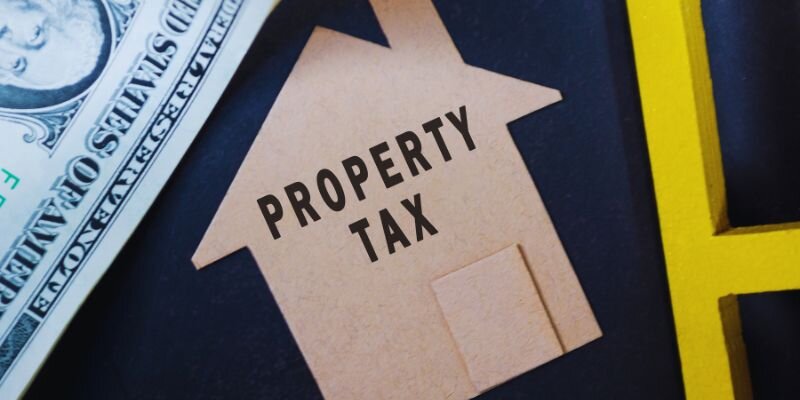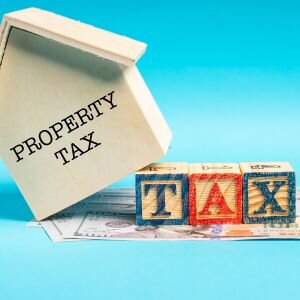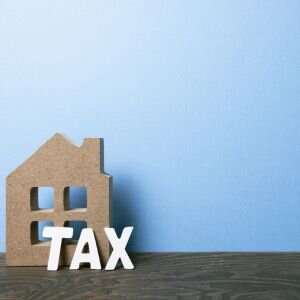
Comprehensive Guide to Waxahachie, Tx Property Tax Rates
Understanding Waxahachie, TX property tax rates is important for people who want to keep track of their money well. In Waxahachie, property taxes are based on how much the home is worth and the tax rates set by the city government, Ellis County, and local school systems, among others.
Each of these entities plays a role in calculating the total property tax rate that homeowners must pay annually. The appraisal district assesses properties each year to determine their market value, which serves as a basis for taxation.
People who own homes can expect their property tax bills to change over time because local governments change tax rates and assess prices. Keeping up with these things is important for planning and making budgets.
Additionally, exemptions may be available for certain homeowners, such as those who are over 65 or disabled veterans, potentially reducing their overall tax burden. Understanding how these exemptions work can provide significant savings on property taxes.
Waxahachie residents who stay up to date on property tax rates and assessment practices are ready for any financial effects that come with owning a home in this growing Texas city.
Legal Framework Governing Property Taxes in Texas and Its Impact on Waxahachie
In Texas, property taxes are governed by the Texas Constitution and the Property Tax Code, which together establish the legal framework for assessing and collecting property taxes across the state, including in Waxahachie. The Texas Constitution mandates that all property be taxed equally and uniformly, ensuring fairness in taxation.
Property prices are largely set by local governments, like county appraisal districts, which do regular evaluations. Property taxes in Waxahachie are based on the market value of each home, which is determined by the Ellis County Appraisal District.
The money from these taxes is very important for paying for things like public schools, emergency services, and keeping the infrastructure in good shape. Texas doesn’t have a state property tax. Instead, it lets local governments set their own rates as long as they don’t go over what the law says.
This localized approach gives Waxahachie some flexibility in setting tax rates based on community needs while adhering to state regulations. Understanding this legal structure is crucial for homeowners in Waxahachie as it directly influences how much they pay in property taxes annually.
Tax rates and exemptions for homeowners in Waxahachie and across Texas can change a lot when new laws are passed or changes are made to current laws.
Understanding How Property Taxes Are Calculated in Waxahachie, Texas
People in Waxahachie, Texas, who own land should know how to handle their property taxes if they want to save money. Why do the taxes on these homes cost so much? That’s because of a number of things. One of these is the tax rate set by the city, county, and school unit. One more is how much people think the house is worth.
The Ellis County Appraisal District is in charge of valuing homes to find out how much they are worth on the market. This value is used to set taxes. Once the market value is known, deductions such as the homestead exemption can lower the value that is taxed.
The local tax rate, expressed as a percentage per $100 of assessed value, is applied to this reduced amount to calculate the total property tax owed. Homeowners need to be aware that these rates can fluctuate annually based on budgetary needs and public services funding requirements in Waxahachie.
Staying informed about changes in assessment practices or tax rates can help residents anticipate adjustments in their property tax bills and plan accordingly. If you’re searching for a reliable company that buys homes in Waxahachie, give us a call at (214) 225-3042 for a no-obligation offer.
Key Factors Influencing Property Tax Assessments in Waxahachie, Tx

In Waxahachie, TX, property tax estimates are based on a number of important factors that have a direct effect on homeowners’ yearly tax bills. The assessed value of the property is the most important factor. The Ellis County Appraisal District figures out the assessed value based on estimates of the property’s market worth.
The appraisal district considers various elements such as the size of the home, location within Waxahachie, age and condition of the property, and any improvements or renovations made. Additionally, local tax rates set by taxing entities like school districts, city government, and county authorities play a crucial role in calculating property taxes.
Homeowners’ total tax bills can change every year because these rates depend on how much money the government needs. Excemptions are something else you should think about. People who qualify can get a big break on their taxes if they have a homestead exemption.
If you are a soldier, disabled person, or senior, there may be more rules that would make the test results even more different. You can plan for how your property taxes will change and how the real estate market will change and react if people in Waxahachie know about these parts.
The Role of the Ellis County Appraisal District in Setting Tax Rates
What the Ellis County Appraisal District does is very important for setting Waxahachie, TX property tax rates. The district is in charge of figuring out how much all the land in Ellis County is worth, which has a direct effect on the taxes that people will have to pay.
A property is appraised by checking it out to make sure the value is correct and in line with the market. Because they are used to figure out property taxes, these values are very important.
The Appraisal District sets these values, and then school districts, city governments, and other local officials use them to figure out how much to tax people based on their budgets and money rules. People who own land can better understand their property tax duties if they know how the Ellis County Appraisal District’s assessments change their yearly payments.
Waxahachie taxpayers can also dispute the value of their property if they believe it does not correctly reflect its market value. It’s possible that this will change their total home tax rate. People in Ellis County who have to pay property taxes need to understand this difficult link between how much a house is worth and how much it is taxed.
Common Misconceptions About Property Taxes in Waxahachie, Texas
When it comes to property taxes in Waxahachie, Texas, several common misconceptions can lead homeowners astray. One prevalent myth is that property tax rates are the same across all of Ellis County, yet these rates can differ significantly depending on the specific location and school district within Waxahachie.
Another common misunderstanding is that a home’s assessed value is the same as its market value. However, the local tax assessor’s assessment often shows a different number because it is based on certain criteria and is updated on a regular basis. A lot of homeowners also think wrongly that appealing their property tax assessment is pointless or hard. However, there are easy steps that owners can follow if they think their property has been overvalued.
Additionally, some people think that exemptions are automatically applied to eligible properties, when in fact homeowners need to apply for certain exemptions like homestead or senior citizen benefits to reduce their taxable amount. Also, excise tax calculator tools can help clarify tax responsibilities. Clearing up these misconceptions can greatly aid residents in Waxahachie to better manage their property tax responsibilities and take advantage of any potential savings available through exemptions and accurate assessments.
Exemptions and Deductions for Homeowners in Waxahachie, Tx
In Waxahachie, TX, homeowners can make a big difference in their monthly payments by learning about property tax allowances and deductions. Waxahachie homeowners can get a number of exemptions that lower their general property tax bill.
The most common exemption is the homestead exemption, which provides a reduction in the appraised value of a primary residence, thus lowering the taxable amount. Senior citizens aged 65 and older may qualify for additional exemptions that further decrease their property taxes.
Homeowners who are disabled and veterans may also be able to get special deductions that are designed to help them, which can be a big help. In addition, these deductions not only save money right away, but they also help save money on property taxes over time.
Waxahachie homeowners who want to take advantage of these exemptions need to keep up with the dates of the exemptions that are offered and submit their applications on time. Knowing how these deductions work in Ellis County’s tax system can help people make smart choices about their real estate investments and ease some of the financial stress that comes with owning a home in the county.
Insights Into Commercial vs Residential Property Taxes in Waxahachie
In Waxahachie, Texas, understanding the differences between commercial and residential property taxes is crucial for property owners. Residential properties typically have lower tax rates compared to their commercial counterparts due to differences in use, zoning, and assessed value.
Every year, the Ellis County Appraisal District rates both types of buildings to find out how much they are worth on the market. This value affects the property tax rate. Commercial properties usually have higher tax rates because they are seen as investments that bring in money and may need more services from the city, like keeping the roads in good shape and making sure everyone is safe.
On the other hand, homestead exemptions can greatly lower the taxable value of residential properties, which leads to lower total property taxes. Some business developments that aim to boost local economic growth might be able to get tax breaks or incentives.
Property owners in Waxahachie should stay informed about these distinctions to effectively manage their real estate investments and understand how different factors can influence their annual tax obligations.
Comparing Waxahachie Property Tax Rates with Other Texas Cities

It’s important to know what makes Waxahachie, Texas’s property tax rates different from those in other towns across the state when you compare them. The low property tax rate in Waxahachie shows that the city is dedicated to keeping public services and facilities in good shape and encouraging community growth.
In contrast, larger metropolitan areas such as Dallas or Austin might exhibit higher property tax rates due to denser populations and greater demands on public resources. Smaller towns nearby, like Ennis or Midlothian, may present lower rates but often offer fewer amenities and services.
The economy, the need for school district funds, and the local government budgets all play a big role in figuring out Waxahachie’s property tax rate compared to other Texas cities. Waxahachie homeowners benefit from a balanced method where property taxes pay for important services without putting too much of a financial strain on people.
Understanding these dynamics helps prospective homebuyers make informed decisions when considering real estate investments within Ellis County and beyond. As trusted cash home buyers in Plano, we make fair cash offers, take care of the paperwork, and close on your timeline.
Historical Trends in Waxahachie, Tx Property Tax Rates
Over the years, Waxahachie, TX property tax rates have changed a bit. The economy has changed, the population has grown, and the local government has made decisions that have led to these changes. Since Waxahachie needs to pay for public services like schools, emergency services, and keeping the city’s infrastructure in good shape, it has set its property tax rates in the past.
As Waxahachie grew from a small town to a thriving city in Ellis County, more people wanted better facilities and amenities, which affected how much people were taxed. In Waxahachie, when the city was growing quickly and home prices were going up, families often saw changes in their tax bills.
Economic downturns occasionally led to more stable or reduced rates as authorities sought to alleviate financial pressure on residents. Additionally, changes in state legislation regarding property taxes have occasionally trickled down to affect the local rates in Waxahachie.
Knowing these historical patterns can help you guess how property tax rates might change in the present and future due to ongoing growth and changes in the economy in Waxahachie and the areas near it.
The Impact of Local Government Budgets on Waxahachie’s Property Taxes
The local government budgets, which show how much money is needed to pay for important services, have a big effect on the property tax rates in Waxahachie, TX. More people need public services like schools, roads, and emergency services because Waxahachie is growing.
The local government needs to think carefully about what to do with the extra money it has set aside. Each year, the leaders of Waxahachie and Ellis County make budgets that show how much money they need for things like schools, public projects, safety, and upkeep.
Those finances directly affect Waxahachie property taxes since they are the main source of funding for those taxes. Thus, property tax rates can be altered to ensure that all important community services are adequately paid if the government’s spending plans change or if costs arise that were not expected.
Knowing this relationship helps homeowners guess how their property taxes might change when the local government’s spending policies and goals change.
Understanding the Relationship Between School Funding and Property Taxes in Waxahachie
Homeowners in Waxahachie, Texas, need to know how the complicated link between school funds and property taxes works. Property taxes bring in a lot of money for local schools, which has a direct effect on the resources and standard of education in the area.
As property values in Waxahachie fluctuate, so do the property tax rates, which in turn affect the funding available to local school districts. The amount homeowners pay in property taxes is determined by both the appraised value of their home and the set tax rate, which often includes allocations specifically earmarked for education.
When property values go up, taxes go up, too. This gives schools more money to improve buildings, hire qualified teachers, and start new, advanced programs. On the other hand, when property prices drop or when tax rates are capped by the government, schools may have trouble making ends meet, which could affect how well students learn.
Thus, residents of Waxahachie must stay informed about how shifts in property taxation directly influence school funding and overall community development.
Exploring the Connection Between Public Services and Property Taxes Collected
Within Waxahachie, TX, property taxes play a big role in supporting the city’s public services, which in turn affects the level and accessibility of these important resources. For example, property taxes pay for emergency services like police and fire companies, keep roads in good shape, and support local schools.
Because people in Waxahachie pay taxes, public spaces like parks, libraries, and recreation centers stay open and in good shape. Property taxes can be different amounts based on how much a house is worth. To be fair, though, these taxes are a big part of the budget for good things like city projects and programs.
The way property taxes are determined shows how well Waxahachie uses its resources to help the community grow and develop while making sure everyone has the same chance to get the public services they need.
What Is the Property Tax Rate in Waxahachie Texas?

Knowing your Waxahachie, Texas, property tax rate is important for homeowners who want to make smart budgeting and buying choices. The city government, Ellis County, school districts, and other special districts in Waxahachie are some of the local taxing bodies that decide the property tax rate. The most recent information we have shows that Waxahachie’s average property tax rate is about
3% of the home’s estimated value. This rate can be different in different parts of Waxahachie because of different taxes put in place by groups like the Waxahachie Independent School District or any relevant local utility districts. People who own homes should also know that these rates are based on how much the Ellis County Appraisal District thinks their home is worth. People who want to buy a home or already live in Waxahachie should check with the local government often to see if tax rates have changed in a way that could affect their general budgeting and the costs of owning a home. Knowing these details helps homeowners stay up to date on any changes to their yearly property tax responsibilities and ready for them.
At What Age Do You Stop Paying Property Taxes in Texas?
People who own land in Texas, especially in Waxahachie, often want to know when they can stop paying property taxes. While there isn’t a set age at which property taxes stop, Texas does offer a number of deductions that can make paying taxes much easier for seniors.
Homeowners aged 65 and older are eligible for the Over-65 Homestead Exemption, which provides a reduction in the appraised value of their home for tax purposes. This exemption can be applied to school district taxes and may vary depending on local regulations in areas such as Waxahachie.
Seniors may also get a tax ceiling on their school district property taxes if they apply for this exemption. This means that as long as they own and live in the home, their school district taxes cannot go up. Seniors who live in Waxahachie must ask for these exemptions through their local appraisal district in order to save as much money as possible on their property taxes.
Understanding these options can help older residents manage their finances more effectively while continuing to enjoy their homes in Waxahachie, Texas.
Who Has the Highest Property Tax Rate in Texas?
If you want to talk about Texas property tax rates, you need to know which places have the highest rates and how they compare to Waxahachie, TX rates. In Texas, property tax rates can be very different from one county and city to the next because of the needs of local governments for funds and the needs of school districts.
Houston is in Harris County, which is known for having high property taxes because it has a lot of people and needs a lot of infrastructure. In the same way, counties like Tarrant, Dallas, and Travis tend to have higher property taxes because they need to pay for school spending and urban growth.
Even though Waxahachie’s rate isn’t as high as these places’, Texas homeowners should still understand how it works as part of the state’s overall property tax system. People who live in Waxahachie can get a better idea of how affordable their local taxes are and plan for the future financial responsibilities that come with owning property in this changing state by comparing these numbers.
What Is the Ellis County Sales Tax Rate?
It’s important to know both the property tax rate and the Ellis County sales tax rate in Waxahachie, TX. The sales tax rate can affect both your total financial planning and the local economy. The total sales tax rate in Ellis County, which includes Waxahachie, is made up of the Texas state sales tax and other taxes collected by the city and county governments.
The state of Texas imposes a base sales tax rate of 25%. However, Ellis County adds its own local sales taxes to this base rate. As of the latest information available, the total sales tax rate for Waxahachie is approximately
25%, which includes both the Texas state sales tax and additional contributions from Ellis County and Waxahachie city taxes. Understanding how these rates interact with property taxes is crucial for homeowners in Waxahachie seeking to effectively manage their expenses and anticipate their annual financial obligations. Being aware of both property and sales tax rates allows residents to make informed decisions about purchasing homes or making investments in this vibrant part of Texas.
Need to sell your home quickly and hassle-free? Whether you’re trying to avoid costly repairs, skip realtor commissions, or just want a straightforward sale, Southern Hills Home Buyers is here to help. We make the process easy. Contact us today to get started!
Helpful Waxahachie Blogs
- Affordable Housing Options In Waxahachie, TX
- Exploring Waxahachie, TX: Top Neighborhoods For Real Estate
- Is Waxahachie, TX The Ideal Place For Your Next Home?
- Understanding Property Tax Rates For Homes In Waxahachie, TX
- The Waxahachie, TX Excise Tax Calculator
- Waxahachie, TX: A Comprehensive Neighborhood Guide
- Essential Strategies To Prevent Home Foreclosure In Waxahachie, TX
- Guide To Successfully Selling Your Home By Owner In Waxahachie, TX
- Optimal Seasons For Selling Your Home In The Waxahachie, Texas
- Discover The Charm of Waxahachie, TX: Real Estate And History
- Expert Tips For Selling Your Inherited House Fast In Waxahachie, TX
- Explore Waxahachie, TX: Free Real Estate Tours And Historic Homes

| TAX BASED | TAX PAYMENT | EFFECTIVE TAX RATE | TAX RATE | ELLIS COUNTY, TEXAS | TAX YEAR |
| FISCAL YEAR | MEDIAN HOME PRICE | U.S. | CALCULATOR | PRICE | PAYMENT |
| MEXICAN | MEXICO | MEDIAN | ZIP CODE |
![HOA Foreclosure Process on a House In [market_city]](https://image-cdn.carrot.com/uploads/sites/21284/2024/10/HOA-Foreclosure-Process-on-a-House.png)
